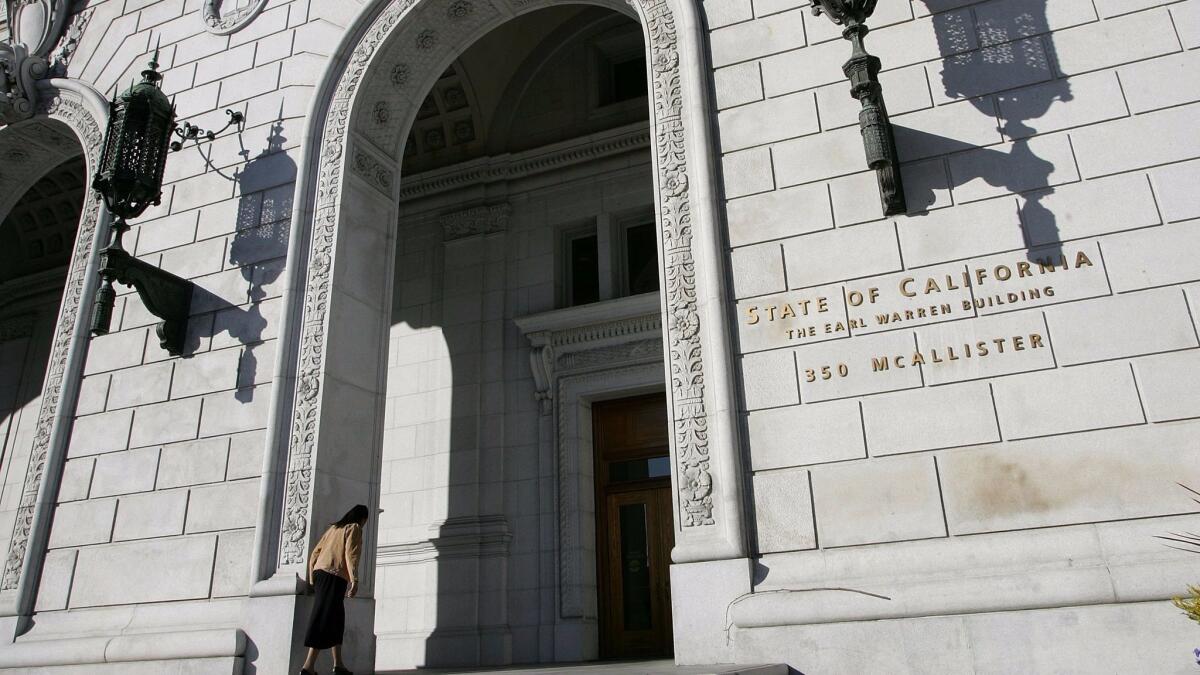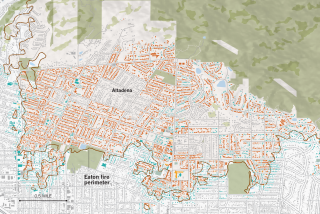Local governments can’t collect taxes from online travel firms

- Share via
In a loss for local governments, the California Supreme Court decided Monday that online travel companies such as Expedia Inc. are exempt from paying hotel occupancy taxes.
The ruling came in one of several lawsuits filed by California cities and counties against the online firms, including Hotwire Inc. and Priceline.com.
The local governments have been attempting to get the firms to pay hundreds of millions of dollars in back taxes.
Lawyers for the government argued the tax should be based on the total amount the companies collect from consumers, not the lower dollar figure the hotels receive. Cities and counties wanted the online sites to pay the difference.
The state high court agreed the tax should be based on the higher amount but said the online companies were not obligated to pay it.
“It changes the rules in California,” said Kent L. Richland, who represented the city of San Diego in the case decided Monday. “It is going to affect all these cases because they are going to have to be decided under new rules.”
Several cities and counties still have cases pending, including a lawsuit by Los Angeles.
So far, the online travel firms have won most of the disputes, which have been litigated across the country.
California’s top court, examining a San Diego transient occupancy ordinance, said it applied only to hotel operators, not the online businesses.
Online travel companies “are not operators,” the court said in a unanimous decision written by Justice Kathryn Mickle Werdegar.
San Diego sued the companies in an attempt to recover about $21 million in back taxes.
Hotels contract with online sites to provide rooms at discounted rates. The sites charge a higher rate and require consumers to pay a charge for taxes and fees.
Hotels have been paying occupancy taxes based on the amounts they received for their rooms, not the higher price paid by consumers to the travel firms
Industry officials say online travel companies typically mark up the wholesale price by 8% to as high as 22%, but there is no standard for this.
Local governments may still be able to recover the additional tax revenue by suing hotels, which were not a party in Monday’s case.
If hotels are sued, the Internet firms could end up footing the bill anyway, Richland said.
Most hotels have contracts that obligate online travel companies to compensate them for any taxes eventually owed, Richland said.
San Diego has not yet decided what to do to next, he said.
A spokesman for the California Hotel and Lodging Assn., a trade group for the state’s hotels and inns, said the good news is that the ruling calls on online travel companies to pay taxes based on the rate they charge guests, not on the wholesale price charged to them by the hotels.
But it also means that hotel owners will be responsible for finding out from the online travel companies how much they marked up the rooms and collect tax on that higher rate. “It means more work on the part of the hotels,” said Lynn Mohrfeld, president and chief executive for the trade group.
In order to change city laws to make online travel companies pay taxes on the total charged to guests, Mohrfeld said an ordinance must be placed before voters and approved by a two-thirds majority.
“Getting a two-thirds majority is an awfully tall order,” he said.
The Travel Technology Assn, the trade group that represents online travel companies such as Expedia and Orbitz, declined to comment on the court ruling.
Twitter: @mauradolan
Twitter: @hugomartin
UPDATES:
5:10 p.m.: This article was updated with additional details.
This article was originally published at 4:35 p.m.
More to Read
Sign up for Essential California
The most important California stories and recommendations in your inbox every morning.
You may occasionally receive promotional content from the Los Angeles Times.











